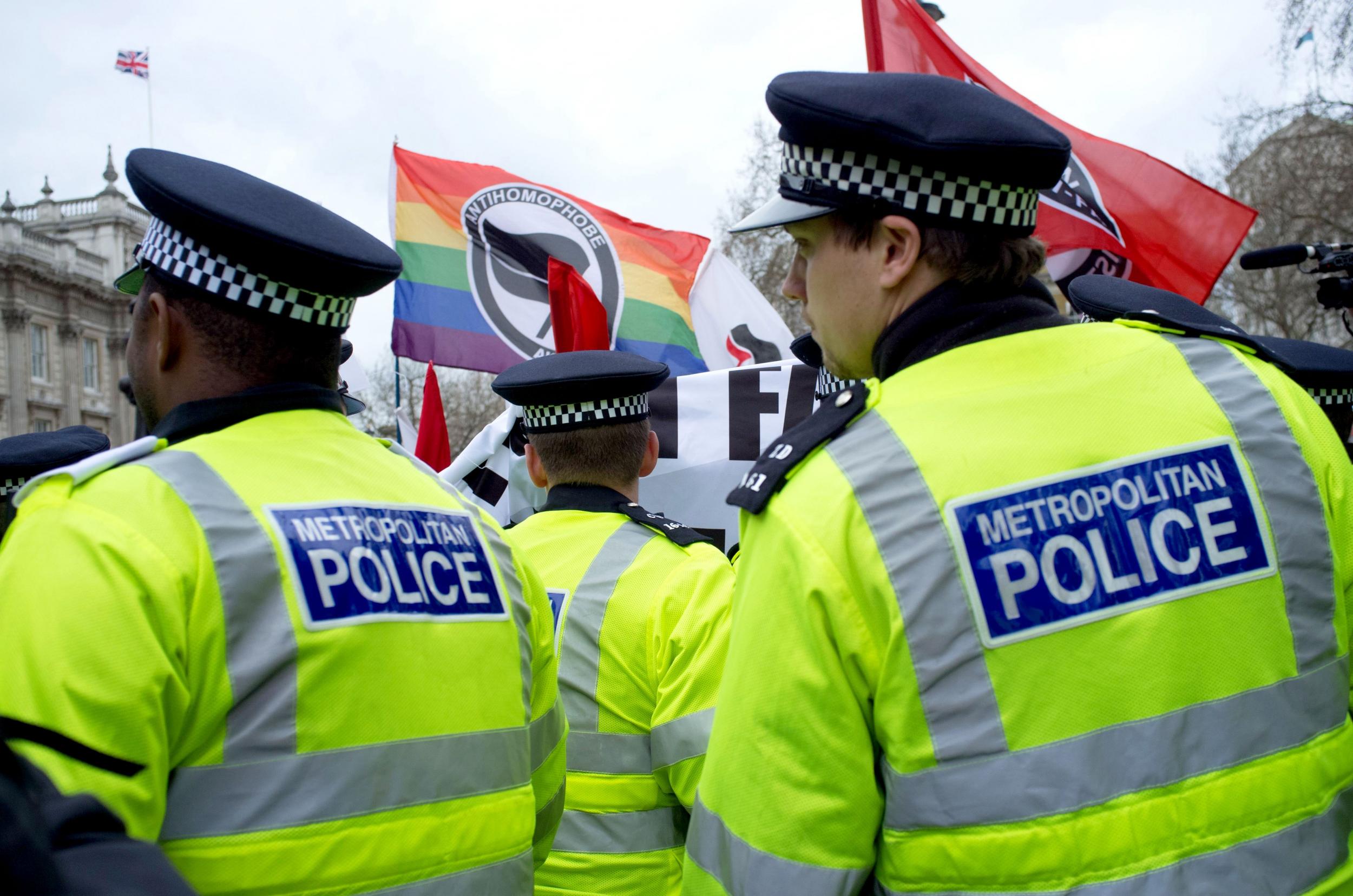Hate crimes increase by a fifth across England and Wales
More than 80% of those recorded were classed as race hate crimes, with others involving religion, disability, sexual orientation and transgender victims

The number of hate crimes reported to police has jumped by nearly a fifth, new figures show.
There were 52,528 such offences recorded by forces in England and Wales in 2014/15 - an increase of 18% compared to the previous year, according to Home Office data.
More than 80% were classed as race hate crimes, with others involving religion, disability, sexual orientation and transgender victims.
The actual scale of hate crimes is likely to be higher than the number drawn from police records.
Officials calculated that, based on combined data from the Crime Survey for England and Wales between 2012/13 to 2014/15, there were an estimated 222,000 hate crimes on average per year.
The latest figures follow a trend seen in 2013/14, when offences involving religious hatred soared by 45% and race hate crime by 4% in the wake of the murder of soldier Lee Rigby.
A report published alongside the new data pointed to improved recording of crime over the last year, particularly for offences involving violence.
It added: "Together with a greater awareness of hate crime, and improved willingness of victims to come forward, this is likely to be a factor in the increase in hate crimes recorded by the police in 2014/15 compared with the previous year."
David Cameron has also announced anti-Muslim hate crimes are to be recorded as a separate category for the first time.
Statisticians found that, contrary to reports, there was no "clear spike" in offences around the times of the independent inquiry into child sexual exploitation in Rotherham in August last year, or the Charlie Hebdo terrorist shooting in Paris in January.
A hate crime is defined as "any criminal offence which is perceived, by the victim or any other person, to be motivated by hostility or prejudice towards someone based on a personal characteristic".
There were increases in reported offences for all five of the monitored hate crime strands between 2013/14 and 2014/15.
Police recorded 42,930 race hate crimes - an increase of 15% on the previous year.
Offences linked to victims' religion increased by 43% on 2013/14 to 3,254, while the number has more than doubled in the last three years.
Hate crimes involving sexual orientation (5,597), disability (2,508) and transgender identity (605) saw annual rises of 22%, 25% and 9% respectively.
An analysis of hate crimes logged by 22 police forces found that 59% were public order offences while three in ten involved violence, of which 30% led to injury.
Despite the rise in hate crimes recorded by police, the crime survey shows a "statistically significant" fall of 28% between 2007-09 and 2012-15.
Based on data from the 2012/13 to 2014/15 survey, it was estimated that there were an average of 106,000 incidents of racially motivated hate crime a year, while 38,000 involved religion.
The poll also indicated that Muslims are more likely than other faith groups to be targeted in religiously-motivated hate crimes.
Karen Bradley, minister for preventing abuse and exploitation, said: "Crimes motivated by hatred or hostility towards someone because of their race, religion, sexual orientation, gender-identity or because they are disabled are absolutely abhorrent and this Government will do everything to eradicate them.
"The increase in recorded hate crime shows that more victims have the confidence to come forward and that the police are improving the way they identify and record hate crimes. We welcome this."
Assistant Chief Constable Mark Hamilton, National Police Chiefs' Council lead for hate crime, said it "damages society and undermines the diversity and tolerance we should instead be celebrating".
He added: "The police are working hard to reduce its impact by listening to victims and supporting the most vulnerable, however, it is also vital that communities and partner agencies come together to challenge hatred wherever they see it."
Press Association
Subscribe to Independent Premium to bookmark this article
Want to bookmark your favourite articles and stories to read or reference later? Start your Independent Premium subscription today.

Join our commenting forum
Join thought-provoking conversations, follow other Independent readers and see their replies